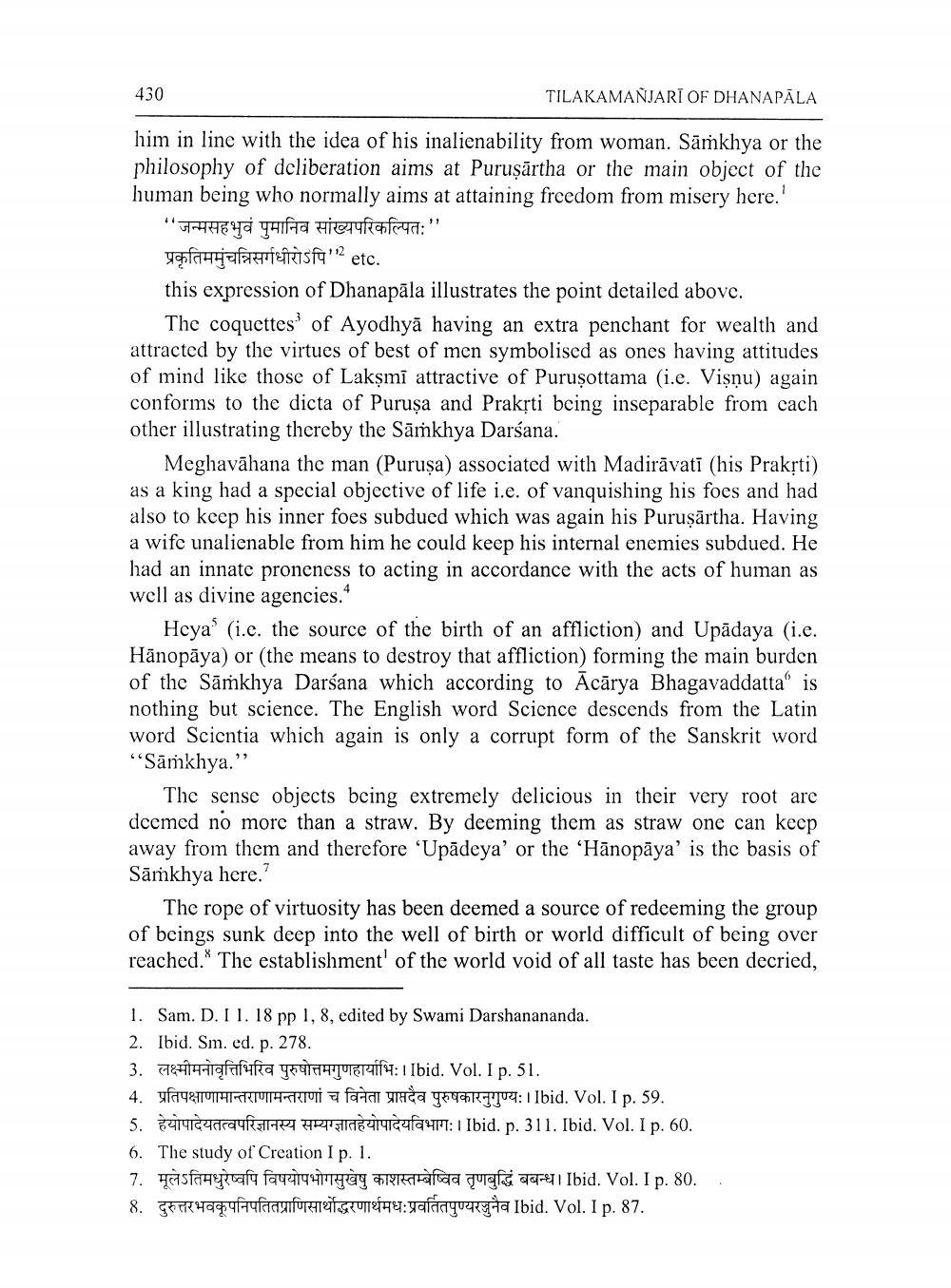________________
430
TILAKAMANJARĪ OF DHANAPĀLA
him in line with the idea of his inalienability from woman. Sāmkhya or the philosophy of deliberation aims at Puruşartha or the main object of the human being who normally aims at attaining freedom from misery here.
"Theya qafta Hierufafcia:" yofaharafeiriSf9' 2 etc. this expression of Dhanapāla illustrates the point detailed above.
The coquettes of Ayodhyā having an extra penchant for wealth and attracted by the virtues of best of men symbolised as ones having attitudes of mind like those of Lakşmi attractive of Purusottama (i.e. Vişnu) again conforms to the dicta of Purusa and Prakrti being inseparable from cach other illustrating thereby the Samkhya Darsana.
Meghavāhana the man (Purusa) associated with Madirāvati (his Prakrti) as a king had a special objective of life i.e. of vanquishing his foes and had also to keep his inner foes subdued which was again his Puruşārtha. Having a wife unalienable from him he could keep his internal enemies subdued. He had an innate proneness to acting in accordance with the acts of human as well as divine agencies.
Heya' (i.e. the source of the birth of an affliction) and Upādaya (i.e. Hānopāya) or (the means to destroy that affliction) forming the main burden of the Sāmkhya Darsana which according to Ācārya Bhagavaddatta is nothing but science. The English word Science descends from the Latin word Scientia which again is only a corrupt form of the Sanskrit word “Sāṁkhya.”
The sense objects being extremely delicious in their very root are deemed no more than a straw. By deeming them as straw one can keep away from them and therefore 'Upādeya' or the 'Hānopāya' is the basis of Sāṁkhya here.?
The rope of virtuosity has been deemed a source of redeeming the group of beings sunk deep into the well of birth or world difficult of being over reached. The establishment of the world void of all taste has been decried,
1. Sam. D. I 1. 18 pp 1, 8, edited by Swami Darshanananda. 2. Ibid. Sm. ed. p. 278. 3. 781 haffufa 441Lubrif: 1 Ibid. Vol. I p. 51. 4. way2MM 4mTi a falta una qual agua: I Ibid. Vol. I p. 59. 5. Pencerayfilla RTErfat: 1 Ibid. p. 311. Ibid. Vol. I p. 60. 6. The study of Creation I p. 1. 7. Hastaycare facilita
a quel cel Ibid. Vol. I p. 80.. 8. GFR 4 yf tufayfursteiguft: Sardiaquepata Ibid. Vol. I p. 87.




